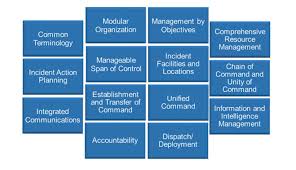Organizational success is largely dependent on effective management, which provides the framework and guidance required to accomplish objectives and promote expansion. The efficacy of leaders and their teams is significantly shaped by the traits connected to management. We examine the NIMS attributes in this piece, revealing the cornerstones of effective management techniques.
1. Cultivating Leadership:
Proficient managers demonstrate robust leadership attributes, steering teams with creativity and vision. The management of NIMS places great emphasis on developing leadership abilities in order to create a motivated and upbeat work atmosphere.
2. Creative Problem-Solving:
Creative problem-solving is a critical component of good management. A focus on promoting creative methods to problem-solving and enabling managers to think creatively and sustainably are examples of NIMS traits.
3. Multidimensional Interaction:
In management, communication must be open and transparent. The significance of multimodal communication—which includes attentive listening, clear articulation, and the use of a variety of communication channels—may be highlighted by NIMS features.
4. The Art of Strategic Planning
Strategic planning is anticipated to be given top priority by NIMS management, which will highlight the necessity for managers to establish specific goals, create workable strategies, and coordinate organizational efforts with long-term objectives.
5. Conscientious Choice-Making:
Making decisions is an essential part of management. NIMS traits could include an emphasis on thoughtful decision-making, taking into account how decisions will affect different stakeholders and the organization as a whole.
6. Group Cooperation:
Successful managers are aware of how important it is to create a cooperative team atmosphere. NIMS management traits could emphasize how crucial it is to form cohesive teams that collaborate to achieve shared goals.
7. A focus on results:
A results-oriented strategy is probably going to be emphasised by NIMS management, which will push managers to monitor performance, set quantifiable objectives, and adjust tactics to guarantee ongoing improvement.
8. Culture of Constant Learning:
Adopting a culture of ongoing education is crucial in today’s changing corporate environment. The significance of managers’ and teams’ adaptation to new data, technology, and industry trends may be highlighted by NIMS features.
In summary:
An essential component of success for organizations is competent management as they traverse the complexity of the contemporary business environment. The NIMS characteristics function as a framework for developing leadership, stimulating innovation, and accomplishing strategic goals, regardless of whether they are associated with a particular management paradigm or are a general collection of attributes. In a constantly changing environment, managers may guide their organizations toward excellence and sustained growth by comprehending and exhibiting these qualities.



